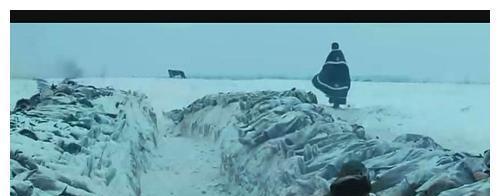From November 1919 to February 1920, the beautiful Lake Baikal was staging this protracted human tragedy, a century-old extreme cold ravaged the Baikal region, a general's wife was giving birth on the snow and ice, the general used his body to block a partition wall, and soon after, the general was frozen, the wife who was giving birth and the little life that had just been born were frozen, and soon after, all the people were frozen.

In March 1917, the February Revolution broke out in Russia, the Russian Tsar was overthrown, Russia formed a provisional government, and Admiral Alexander Vasilyevich Kolchak was the first to swear allegiance to the provisional government, saying that "I am not serving this or that form of government, but to serve the motherland that I regard above all else", hoping that the new government will establish a new order in Russia, but the development of events has disappointed him greatly.
The Provisional Government relieved Kolchak of his post as commander of the Black Sea Fleet and sent him to the United States for military study, Kolchak stayed in the United States for more than two months, and then when he returned via Japan, the Russian Bolsheviks held the October Revolution, which overthrew him as a legitimate government, and in 1918 the Russian Provisional Government moved to Siberia, Kolchak was appointed Military Minister, and in November 1918, Kolchak was declared the supreme consul of Russia.
In a very short time, Kolchak formed an army of 150,000 people, launched an attack on the Soviet Red Army in the spring of 1919, and once attacked the Volga River Valley, but was defeated by the Red Army general Frunze, in October 1919, Kolchak was forced to lead 1.25 million soldiers and civilians through the cold Siberia, ready to go to the Far East to seek japanese help, accompanied by 500 tons of gold nuggets in the Tsar's treasury, and embarked on a road of escape of more than 6,000 kilometers.
Kolchak was already at the bottom of 10 when they set out, and the temperature in Siberia was more than -20 degrees Celsius, which was still possible for the Russians, but in early November, there was a sudden extremely cold weather in Siberia that was rare in a century, with low temperatures accompanied by a blizzard, and the temperature dropped sharply from minus thirty degrees to more than -sixty degrees, and a terrible disaster befell the fleeing army.
On the 1,000-kilometer snow field from Omsk to Lake Baikal, frozen crowds, discarded sleighs, and frozen horses paved the road, and near the small town of Nikolaivsk alone, more than 200,000 people froze to death in one night, and by the beginning of February 1920, when they had worked so hard to reach the shores of Lake Baikal, the fleeing army had gone from 1.25 million to 250,000 at the time of departure. To be on the safe side, they had to cross Lake Baikal, which was 80 kilometers wide and had frozen 3 meters thick, and the 250,000 survivors began to cross the surface of Lake Baikal, when the maximum extreme cold arrived, and the temperature dropped to minus sixty-nine degrees, and in this temperature, even wearing bearskin and wrapping in sea leopard skins, it was useless, and at this point, a disaster that humans could not imagine appeared.
People walked and became ice sculptures, and when they stopped, they would be frozen, a general's wife was about to give birth, but no one could help, all the people just walked past her with a heavy face, the general could only use his body to block a partition wall, hoping to block some wind chill to his wife who was giving birth, and soon, the general was frozen, and soon, the wife who was giving birth and the little life that had just been born were frozen, and soon, all the people were frozen.
When the blizzard finally stopped, there was a dead silence on the surface of Lake Baikal, all the sorrow, pain, sighs, hatred, indignation, 250,000 undead, 500 tons of gold nuggets, all buried under the thick snow, when the spring came to Lake Baikal, the ice melted, 250,000 corpses, 500 tons of gold all sank to the bottom of Lake Baikal, with an average depth of more than 700 hundred meters.
In 2009, a Russian submarine in a 400-meter-deep Baikal bottom, found a "sparkling metal object belt", the submarine operator tried to grasp the metal with the robot arm, unsuccessful, but the submarine has locked the specific location of these luminous metals, the Moscow News With "Tsar's Treasure Surprises Baikal" as the headline, a large number of reports on this discovery, I believe that it will not be long before 500 tons of gold will break out of the water, but 250,000 undead, Will disappear forever at the bottom of Lake Baikal.